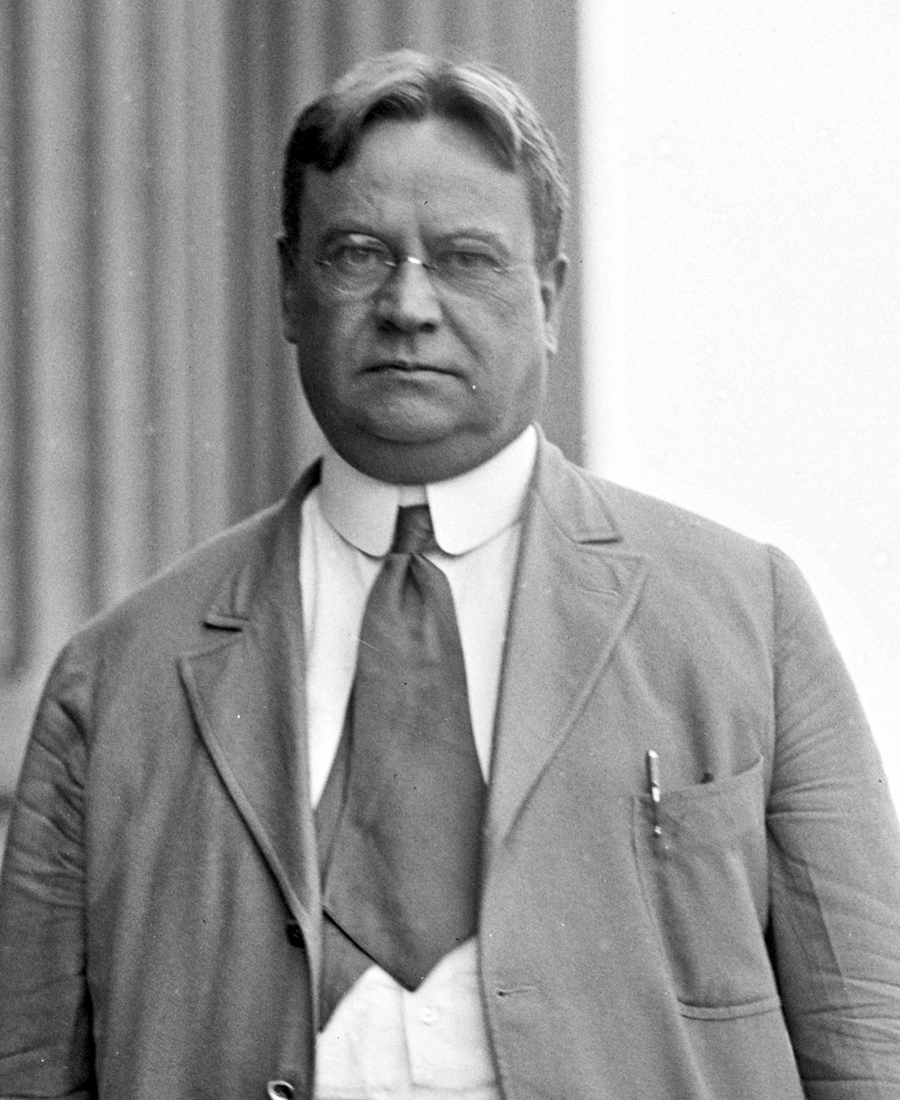Hiram Warren Johnson was an American attorney and politician who served as the 23rd governor of California from 1911 to 1917. Johnson achieved national prominence in the early 20th century. He was elected in 1916 as the United States Senator from California, where he was re-elected to five terms and served until his death in 1945.
As a governor, Johnson was a leading American progressive. He ran for vice president on Theodore Roosevelt's Progressive ticket in the 1912 presidential election. As a US senator, Johnson became a leading liberal isolationist, among those "Irreconcilables" who opposed the Treaty of Versailles and rejected the League of Nations. Later, Johnson was also a vocal opponent of the United Nations Charter.
After having worked as a stenographer and reporter, Johnson embarked on a legal career. He began his practice in his hometown of Sacramento, California. After he moved to San Francisco, he worked as an assistant district attorney. Gaining statewide renown for his prosecutions of public corruption, Johnson won the 1910 California gubernatorial election with the backing of the Lincoln–Roosevelt League. He instituted several progressive reforms, establishing a railroad commission and introducing aspects of direct democracy, such as the power to recall state officials. Having joined with Roosevelt and other progressives to form the Progressive Party, Johnson won the party's 1912 vice-presidential nomination. In one of the best third-party performances in U.S. history, the ticket finished second nationally in the popular and electoral votes.
Johnson was elected to the US Senate in 1916, becoming a leader of the chamber's Progressive Republicans. He made his biggest mark in the Senate as an early voice for isolationism, opposing U.S. entry into World War I and U.S. participation in the League of Nations.
He unsuccessfully sought the Republican presidential nomination in 1920 and 1924. He supported Democratic nominee Franklin D. Roosevelt in the 1932 presidential election. While Johnson supported many of Roosevelt's New Deal programs, by November 1936 he became violently hostile to Roosevelt as a potential dictator. Johnson was in increasingly poor health in his later years, but remained in the Senate until his death in 1945.
Wikipedia
✵
2. September 1866 – 6. August 1945
